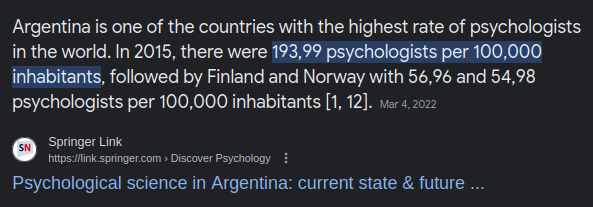Looking for a general Marxist view on Freud.
At first glance, to me everything relating to Freud sounds like pseudoscientific, idealist garbage ... everything that Marx's scientific socialism should be opposed to in principle. Nevertheless there was a Freudo-Marxist school that overlapped with the Frankfurt School, who thought the ideas of Freud and Marx could be married to some extent.
So,
- What was Freud about?
- Was Freud full of shit?
- Is Marxism compatible with psychoanalysis?
a Freudo-Marxist school that overlapped with the Frankfurt School
The only reason i'm not already smelling the revisionism of that approach is that i just made a very strong and delicious coffee.
Psychology nowadays is an empirical, clinical science that has very little regard for the works of Freud (and Jung as well, who is even more openly esoteric and full of quackery), and i'm glad about them discarding such holdovers. Understanding Freud is still useful in the humanities due to his outsized cultural impact, but that should be understood as an analysis of a deeply unscientific branch of pop culture, not as something that allows you to analyze the workings of the human mind, let alone other people's mental illnesses. When you understand Marxism as a scientific approach towards economic and political theory that changes and adapts with new evidence, it is advisable to disregard Freud's writings, as his theories are not replicable, and have a marked tendency to produce a mysogynist, homophobic and transphobic bias that has led to all kinds of stigmatizing, persecutory concepts like paraphilia theory, a general openness to conversion "therapy" and later outcroppings of academic transphobia like the AGP and tr*nsvestitic fetishism discourses. While Freud himself wasn't outstandingly homophobic for his time and for the psychiatric community back then, he still developed a treatment approach that relies heavily on the therapist enforcing their own biases on their patients, openly encouraging to question and disregard their accounts whenever possible, and this makes Freudian psychotherapy inherently gaslighty and risky for queer, especially trans patients. From first- and especially ample second hand experience within the queer communities i'm active in, i've just heard too many accounts of boundary-violating, invalidating and traumatizing sessions. Psychoanalysis is not up to today's standards of clinical care, and from a philosophocal standpoint is deeply rooted in a universalist liberal idealism, which is inherently at odds with a genuine Marxist approach.
Psychology has a really big problem with focusing on like only 5-10 theorists. A single theory or approach can never encompass the complexity of the mind. Also most of them ignore the effect of environmental conditions, instead arguing that illness is innate and genetic. Every theorist should be taken with a huge amount of skepticism. Freud played a good part in getting psychology accepted, but he also played a huge part in modern stigma and dehumanization of the mentally ill.
One of the Freudo-Marxists is Erich Fromm, who I recall from
a Jonas Čeika video[edit: sorry it was actually this video around 21:00] thought that mental illness can often be understood as a symptom of a sick society rather than sick individuals. Isolated but intriguing point.I absolutely agree with that. Look at ADHD and the interactions it has with capitalist marketing. What commercials can do to a child's brain is awful. Kids brains get fucked up by constant barrages of advertising. They can remember jingles better than multiplication tables because the jingles are psychologicaly designed to trigger attention and excitement. You are bombarded with this stuff your whole life in Amerikkka and it really fucks up your brain and attention span. Truly a symptom of a sick society. Shit needs to be illegal.
My take is that some of the big ideas are interesting when applied at a societal level. Can you diagnose a person with a mental illness based on their id? No. Can you use the concept of one's perception of external social drivers as a means to describe why we haven't overthrown capitalism? Possibly. The idea that societal evolution comes about from how subjective individuals (ego) understand the society around them (id) and then materially act to mediate that (superego) is nonsense clinical practice, but an interesting dialectal approach to how people interact with society.
This is essentially how Zizek and Fisher did political philosophy.
dialectical approach
Again I haven’t read Freud so I’m really just talking.
If Freud’s psychoanalysis is dialectical it seems more in an idealist or Hegelian sense, the chief defect of that kind of dialectics being that it actually reaffirms the ideas/categories it poses. The Hegelian approach therefore proves its own categories while pretending to critique them.
It seems that Freud starts out with these concepts of ego/id, and many others beside, without motivating them from a genuine material basis. It would be like if Marx started in Capital with the value category, instead of discovering it through the analysis of the commodity.
essentially, yeah. it's much more in that camp. i think it's metaphorically a useful dialectic but little more. i want to be very clear that i don't think i would say that freud's psychoanalysis is dialectical. just this particular way that he tried to reason about the human psyche. i haven't read much freud himself, but it seems to me that he was totally unable to apply these ideas to anything materially going on with society or an individual without introducing his insane personal cultural baggage from being a european male. i moreso wanted to answer your question about why marxists talk about freud.
My understanding is the guy was more or less making shit up. Thats an unscientific take by me obviously. However, he popularized the science, which eventually proved a lot of his thinking to not have a basis in objective reality.
-
Psychoanalysis, one of the first talk therapists, a mixture of old school psychological-clinical materialism getting an upgrade to include more areas and taboos like death and sex (he over focused on it there but that's a tendency when one ignores something for so long) and idealist conjecture since he didn't/couldn't study his conditions fully and had a limited dataset, his patients were all deeply ill bourgeois. I see Freud as more of a dualist, when he was dialectal its in a Hegelian sense
-
To a degree (see above), to a degree he or his followers even hit today, Freudian psychology is big AF so its not a simple yes-no, his influence on other areas of thought is undeniable. There's issues with subjectivity v objectivity judgements in making calls in a case that gets very messy and goes back to psychology (or medicine in general's) roots in the west.
-
Again not so clear cut, its very idealistic and mechanical at places to the point of bordering mystical (that's where Jung steps in and takes mystic metaphysical thought to completion, Freud just pokes at it with a stick but never directly with a sort of almost nostalgia) and with his limited data set all these bits of info would paint an observational data set a bit off from the rest of material reality, but then even as far off as this data set was he did learn something very tangible and repeatable socially about the importance of open communications and therapy for aiding in mental illness and in general, in places yes, in others no he's 100pct idealist, for a general you could make it work for you to understand something depending on what you want to look at. Many psychologists and clinicians in general even today do not look at environmental conditions, which isn't to give the guy slack but to say how feudal we still are in the west.
-








